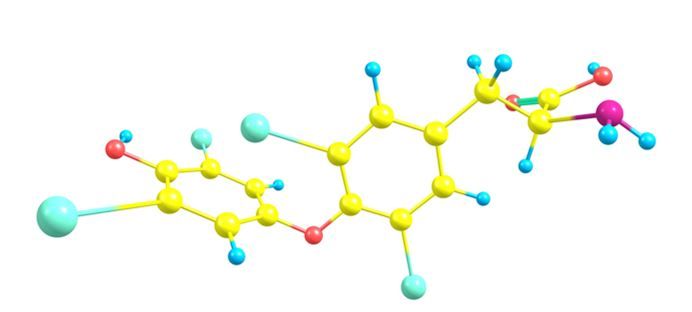Article
Subclinical Hypothyroidism: To Treat or Not to Treat?
Author(s):
A new meta-analysis found no improvement in symptoms or in quality of life among more than 2000 participants treated for subclinical disease.
©ollawella/stock.adobe.com

Thyroid hormone therapy for subclinical hypothyroidism is not associated with improved quality of life (QOL) or of thyroid-related symptoms, according to a new study in the Journal of the American Medical Association.
Subclinical hypothyroidism is a common condition, affecting an estimated 13 million people in the US, and is more prevalent among women and older persons. It is often treated with thyroid hormones, especially when it occurs with symptoms typically attributed to hypothyroidism, such as tiredness, constipation, and unexplained weight gain. The benefits of treatment have remained uncertain.
“Relatively limited evidence exists from randomized clinical trials to guide therapy of subclinical hypothyroidism. Systematic reviews have been inconclusive and clinical practice guidelines have varied regarding recommendations for managing subclinical hypothyroidism,” stated the researchers, led by Martin Feller, MD, of the Bern University Hospital in Sweden.
The researchers conducted a meta-analysis of 21 randomized clinical trials including 2192 participants with subclinical hypothyroidism to investigate the association of thyroid hormone therapy with QOL and thyroid-related symptoms. Randomized clinical trials that compared thyroid hormone therapy with placebo or no therapy in non-pregnant adults with subclinical hypothyroidism were included in the analysis.
Study sizes ranged from 20 to 737 participants and the length of treatment ranged from 3 to 18 months. The mean ages of participants ranged from 32 to 74 years. The baseline mean thyrotropin values ranged from 4.4 to 12.8 mIU/L.
Overall, 21 of 3088 initially identified publications met the inclusion criteria. After treatment, thyroid hormone therapy was associated with lowering the mean thyrotropin value into the normal reference range compared with placebo, but was not associated with benefit regarding general QOL or thyroid-related symptoms.
"...[treatment] was associated with lowering the mean thyrotropin value into the normal reference range compared with placebo, but was not associated with benefit regarding general QOL or thyroid-related symptoms."
“Results of this review consistently demonstrated no association of thyroid replacement therapy with improved outcomes, including a relatively large number of diverse outcomes. Most outcomes, except cardiovascular events and mortality, had narrow confidence intervals. In addition, this meta-analysis focused on patient-centered outcomes such as QOL and fatigue, which are the most common symptoms that prompt therapy in general practice,” the researchers wrote.
Current guidelines are cautious with treatment recommendations but, “more than 90% of persons with subclinical hypothyroidism and a thyrotropin level of less than 10 mIU/L would actually qualify for treatment,” the researchers wrote. “However, results of this meta-analysis are not consistent with these guideline recommendations. In addition to absence of an association of thyroid hormone therapy with improved outcomes, thyroid hormone therapy is associated with adverse effects when overtreatment occurs.”
Mean thyrotropin values at baseline were <7.0 mIU/L in 11 of 21 included trials, and only 2 trials examined participants with a mean baseline thyrotropin level >10 mIU/L. “Therefore, the current findings may not be generalizable to people with subclinical hypothyroidism and a thyrotropin level higher than 10 mIU/L,” the researchers noted.





